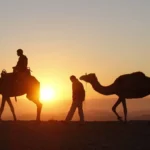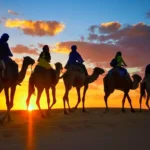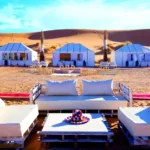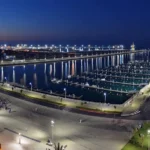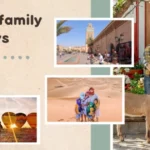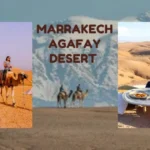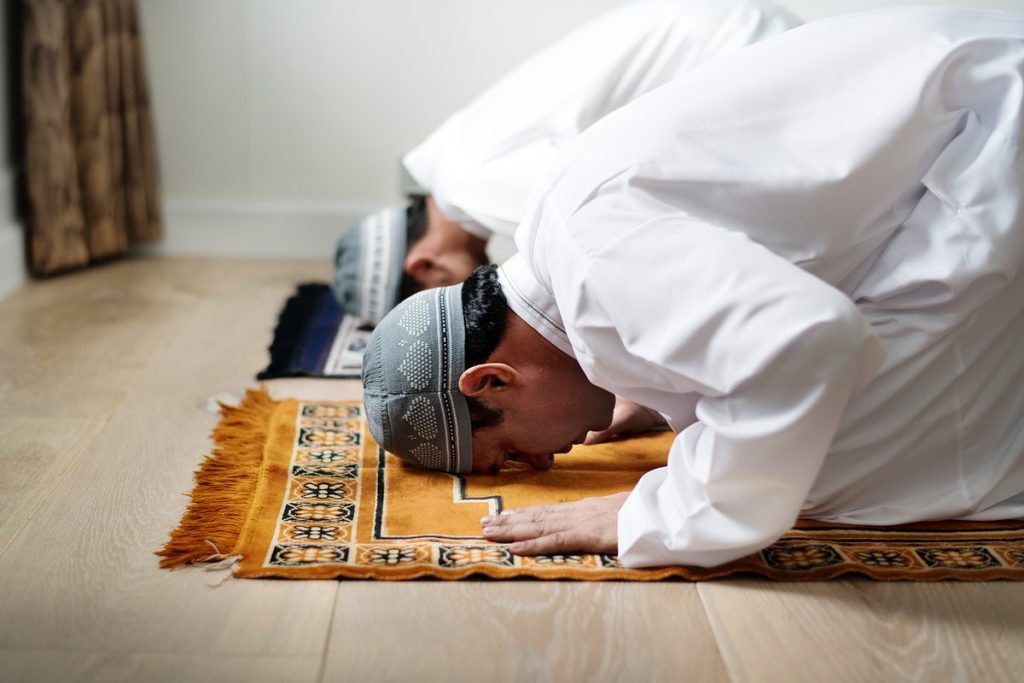
As Ramadan approaches in Morocco, I am often asked if I recommend traveling; the doubt is reasonable, as it is a completely different time of year from any other, with its advantages and disadvantages.
But before answering the question, I think it’s best to explain what this characteristic celebration is all about (it’ll be fun, don’t worry).
The meaning of Ramadan
Many people summarise Ramadan in two phrases: going hungry during the day and bingeing at night. In my opinion, this is a simplification that does a disservice to one of the elements that most represents the religion and, by extension, Moroccan culture.
As you know, Morocco is a religious country, and as with all religions, there is a tone that is maintained: the approach to God through the purification of the soul, which has a lot to do with the way we treat others and ourselves. Whatever your beliefs, I think you will agree with me in understanding religion as a way of living life with certain ethics and conscience.
In this sense, Ramadan, apart from religious matters, proposes self-discipline, or what amounts to the same thing: proving to yourself that you are capable of living without a series of temptations, that you are capable of overcoming a series of barriers that your circumstances and your own body place in front of you. How many times have you tested yourself, for example by promising not to be so aware of the constant notifications on your mobile phone? Well, that and Ramadan have many similarities.
We can therefore understand Ramadan as an invitation to make a conscious effort to improve one’s behavior and have more self-discipline. And it is not only restricted to food, but also to other temptations that may disturb the meditation practiced throughout the day, such as drinking, sexual intercourse, or any kind of drugs (including tobacco).
For example, during Ramadan in Morocco, it is common to offer alms (emphasizing that you don’t need so much money and that you can give it to those who need it most).
So how should the meal that takes place during the night be understood? As a way of celebrating as a family, we have been able to pass the test for another day.
Don’t you see it in a different light?
Beginning of Ramadan in Morocco
Muslims follow a lunar calendar (11 days shorter than ours) to set their religious celebrations, so Ramadan (or any other Muslim date) can occur in any season of the year (imagine spending it in the middle of summer). More information about the Moroccan calendar can be found at this link.
It starts with the new moon, on the last day of the eighth month of the Islamic calendar, but it is not known exactly until a few days beforehand because, although it can be anticipated through the use of astronomy, tradition dictates that it is the imam, observing the sky to identify the first sign of a crescent moon, who indicates its beginning, which causes a margin of error of approximately two days.
For example, in 2020 it took place from 24 April to 23 May. And since there is an 11-day gap with our calendar, it is most likely that in 2021 Ramadan will take place from 13 April to 12 May, or up to two days earlier or later.

Traveling to Morocco in Ramadan: pros and cons
I am going to tell you my personal experience after visiting the country on numerous occasions during this time.
What is most striking is that everything slows down: people go in slow motion and there is hardly any traffic at all during the day (except for an hour before and after the fasting obligation ceases). This has one big advantage, and that is that the “sporadic guides” (those who kindly offer to help tourists by tipping them) disappear, so you can walk around in a much calmer way and without the need to say “no” at every turn.
One drawback is that it is more difficult to eat lunch in the street; most of the fasting means that the kitchens are often closed during the day, so you will have to resort to tourist-oriented restaurants in the most emblematic places. You will have no choice but to eat food that is probably less authentic and probably more expensive.
An alternative is to eat a good breakfast, and stock up on some food (e.g. a drink, a sandwich, and a piece of fruit) for a snack throughout the day. But try to be discreet: bear in mind that not only can they not eat, but they also can’t even drink water. And, as you understand, it must not be pleasant for you to do so in front of them, even if they don’t acknowledge it out of politeness.
Also, as you may have gathered, being subjected to such strict self-discipline for days at a time makes them cranky, and it is not uncommon to see them arguing. So, if you happen to have a problem with someone, my advice is to take a three-second breath and say goodbye politely to avoid conflict.
Fortunately, as the evening wears on, the mood blossoms into a big party when the sirens sound signaling the end of the fast. Then they take the opportunity to drink fruit juice, accompanied by dates, and then go to the mosque to pray. Then they return home to eat with the family and go out into the street, celebrating that they have been able to pass the test for another day; the street becomes an anthill of people, with the cafés full and the children playing in the street, … everyone sharing a great joy.
And on a Ramadan day, what happens to the shops and monuments of interest? They more or less follow their usual opening hours, but with nuances: if the shops are very focused on local customers, they may have reduced opening hours and, on rare occasions, close for a few days. Monuments of interest and museums will not be affected or, at most, will close a couple of hours earlier.

Curiosities and other interesting facts
Some people, for temporary personal reasons, are unable to follow Ramadan in whole or in part (e.g. they have to travel a long distance and need to be fed and hydrated). In such cases, they are allowed to make up for it later.
It goes without saying that people who, due to temporary or permanent health problems, simply cannot observe the fast (sick people, children, the elderly, pregnant or menstruating women, etc.) do not even need to make up the fast.
As well as a way of proving to oneself that one can live without certain things, Ramadan is also a time when Moroccans use to recapitulate all the bad things that have happened during the year and turn the page. However, it is not necessary to wait until Ramadan in Morocco to take advantage of this opportunity: if someone, for whatever reason, wants to fast on any day of the year, they can do so.
Moroccans are not only fond of extolling the religious or spiritual virtues of Ramadan, but also the biological ones: they think it is good for the body to undergo a severe fast for a month a year, and they seem to be right.
Smokers become particularly irascible during Ramadan. Those of you who were once regular smokers and managed to quit (my sincere congratulations) know that it is common to put on some weight, as you compensate for abstinence by drinking and eating more. Imagine that all of a sudden you can’t smoke from sunrise to sunset, nor can you eat or drink. So please, if you know any smokers, be particularly diligent with them (and if you are a smoker, try not to smoke around anyone).
Concluding
The question you will all be asking at this point in the article is, I think, obvious: is it worth traveling in Ramadan or is it better to avoid it?
I think it is extremely difficult and unfair to answer this question in a clear-cut way because, as you may have deduced, Morocco becomes a completely different country in Ramadan. Is it a time to go regularly? It’s a matter of taste: I have friends who only want to go in Ramadan because they appreciate the tranquillity and others who prefer to avoid it; what I would certainly recommend is to experience it at least once.
And that concludes yet another entry on Morocco’s vast culture. It only remains for me to remind you that if you have any doubts or want to share your impressions or curiosities about this celebration … Take advantage and comment! A big hug to all of you
This article is part of our information for those traveling to the country for the first time. If you want to know more, we invite you to contact us.

